**Article taken from jw.org (11/24/22)**
Two Translators Who Restored God’s Name to the New Testament
One of the first prayers that many people learn is the Lord’s Prayer, which Jesus taught his followers. This prayer is found in what is commonly called the New Testament. The prayer begins: “Our Father in the heavens, let your name be sanctified [or hallowed].” (Matthew 6:9) Yet, God’s name, rendered in English as “Jehovah” or sometimes “Yahweh,” is rarely found in English translations of the New Testament. These translations do, however, include the names of false gods, such as Zeus, Hermes, and Artemis. So should they not mention the name of the true God and Author of the Bible?—Acts 14:12; 19:35; 2 Timothy 3:16.
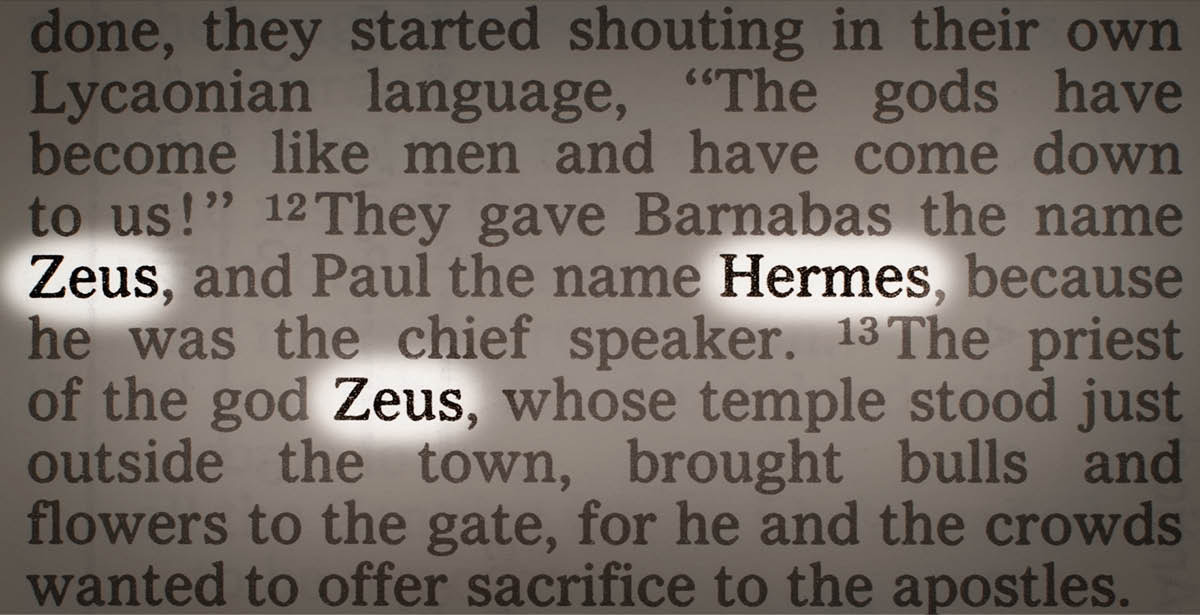
The New Testament names several false gods, so would you not expect it to name the true God as well?
The English Bible translators Lancelot Shadwell and Frederick Parker believed that God’s name should be restored to the New Testament. Why use the word “restored”? Because they concluded that God’s name was there originally but was later taken out. Why did they draw that conclusion?
Shadwell and Parker knew that existing manuscripts of what is often called the Old Testament, originally written mainly in Hebrew, include God’s personal name thousands of times. So they wondered why the New Testament manuscripts available to them omitted the full form of God’s name. a Also, Shadwell noticed that when New Testament manuscripts use common Old Testament expressions, such as “the angel of Jehovah,” copyists of the Greek New Testament had evidently replaced God’s name with terms like Kyʹri·os, which means “Lord.”—2 Kings 1:3, 15; Acts 12:23.
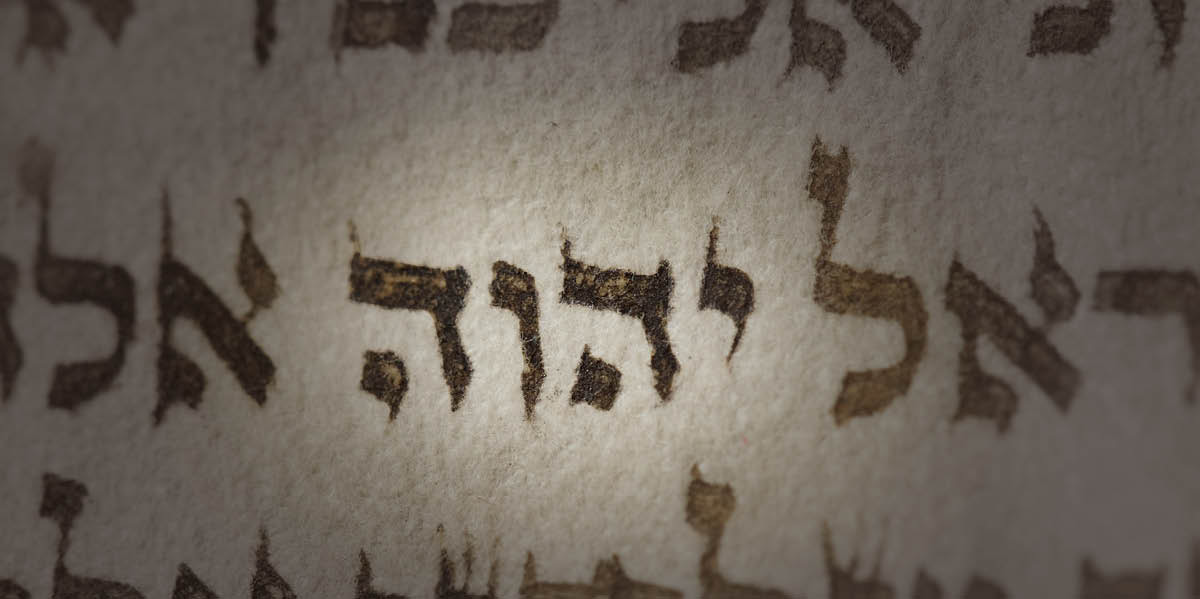
God’s name in Hebrew
Even before Shadwell and Parker published their English translations, other translators had restored God’s name to their English translations of the New Testament, but only in relatively few places. b Prior to 1863, when Parker published A Literal Translation of the New Testament, no English translator is known to have restored God’s name extensively in a published New Testament. Who were Lancelot Shadwell and Frederick Parker?
Lancelot Shadwell
Lancelot Shadwell (1808-1861) was a barrister and the son of Sir Lancelot Shadwell, the vice-chancellor of England. The son belonged to the Church of England. Although he believed in the Trinity, he showed respect for God’s name, describing it as “the glorious name of JEHOVAH.” In his translation, The Gospels of Matthew, and of Mark, he used “Jehovah” 28 times in the main text and 465 times in the accompanying notes.
Shadwell may have learned about God’s name by seeing it in the Old Testament in the original Hebrew. He stated that those who had replaced God’s name with the term Kyʹri·os in the Greek translation of the Old Testament “were not honest translators.”
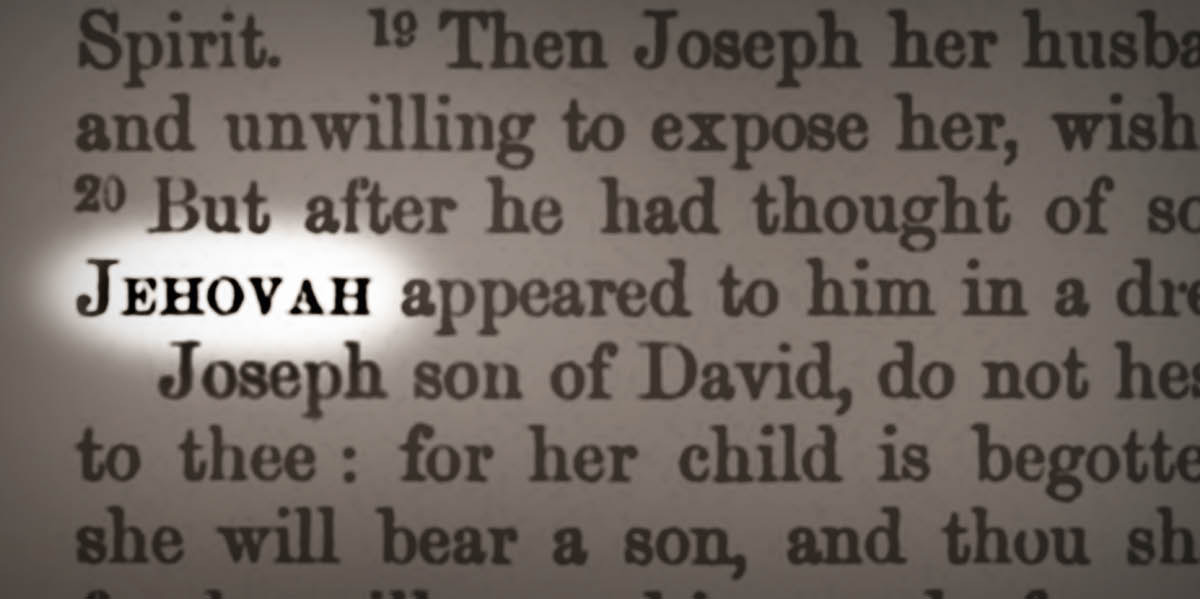
The Gospel according to Matthew rendered into English with notes, by L. Shadwell (1859), provided by the Bodleian Libraries. Licensed under CC BY-NC-SA 2.0 UK. Modified: Text highlighted
Shadwell’s translation showing Matthew 1:20
In his translation, Shadwell first used “Jehovah” at Matthew 1:20. His note for that verse says: “The word [Kyʹri·os] in this, and in many other passages in [the] N.T. means JEHOVAH, the proper name of God: and it is most important to restore this word to the English translation.” He also stated: “The honour of God requires it. He has declared himself by the name of JEHOVAH: and we cannot do better than use that name when we speak of him.” He then said: “In our E.V. [Established, Authorized, or King James Version] of the Bible, the name of JEHOVAH rarely occurs . . . Instead of the proper name of God, we read, The Lord.” Shadwell claimed: “The Lord . . . is a most unworthy title” to use as a substitute for God’s name, adding that even he is called “The Lord” at his manor, or country home.
“[God] has declared himself by the name of JEHOVAH: and we cannot do better than use that name when we speak of him.”—Lancelot Shadwell
Shadwell published his translation of Matthew in 1859 and his combined version of Matthew and Mark in 1861. But then his work came to an end. He died on January 11, 1861, at the age of 52. Nevertheless, his efforts were not in vain.
Frederick Parker
Shadwell’s translation of Matthew came to the attention of a wealthy London businessman named Frederick Parker (1804-1888), who set out to translate the New Testament when he was about 20 years of age. Unlike Shadwell, Parker rejected the teaching of the Trinity. He wrote: “[May] the whole Church of [God’s] dear Son . . . heartily embrace the truth . . . and worship the one Almighty Jehovah.” Parker also felt that New Testament manuscripts that use Kyʹri·os for both the Lord God and the Lord Jesus obscured the distinction between the two. So he was intrigued to see that in certain contexts Shadwell rendered Kyʹri·os as “Jehovah.”
How did Parker understand such matters? He studied Greek and wrote several books and tracts on Greek grammar. He also became a member of the Anglo-Biblical Institute, which promoted research into Bible manuscripts with a view to producing better English Bibles. In 1842, Parker began publishing his first translation of the New Testament in several parts and editions. c
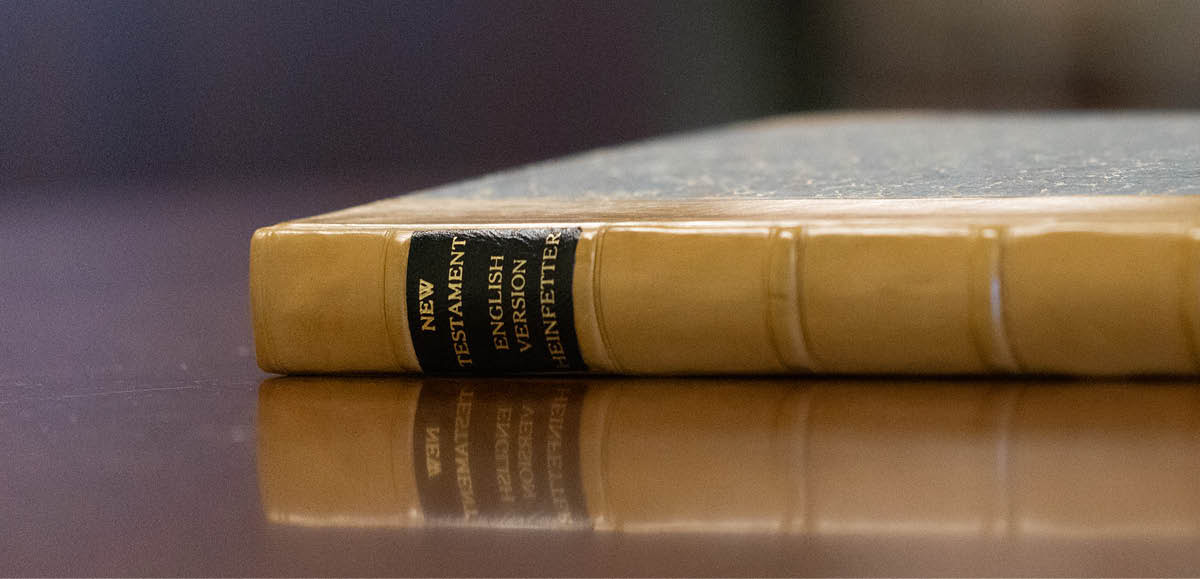
A translation of the New Testament by Parker (Heinfetter)
Parker’s Efforts to Restore God’s Name
For some years Parker had written regarding such questions as: “When does Kyʹri·os refer to the Lord Jesus, and when does it refer to the Lord God?” “Why is Kyʹri·os often used grammatically as a name and not as a title?”
When Parker saw Shadwell’s 1859 translation of Matthew with its comments on Kyʹri·os, he became convinced that in certain contexts, Kyʹri·os “should be translated Jehovah.” So he revised his entire translation of the New Testament to include “Jehovah” wherever he believed that the context or grammar of the Greek text indicated it. Thus, Parker’s one-volume 1863 edition of A Literal Translation of the New Testament contains God’s name 187 times in the main text. As far as is known, this is the first published English version to use the divine name throughout the Christian Greek Scriptures. d
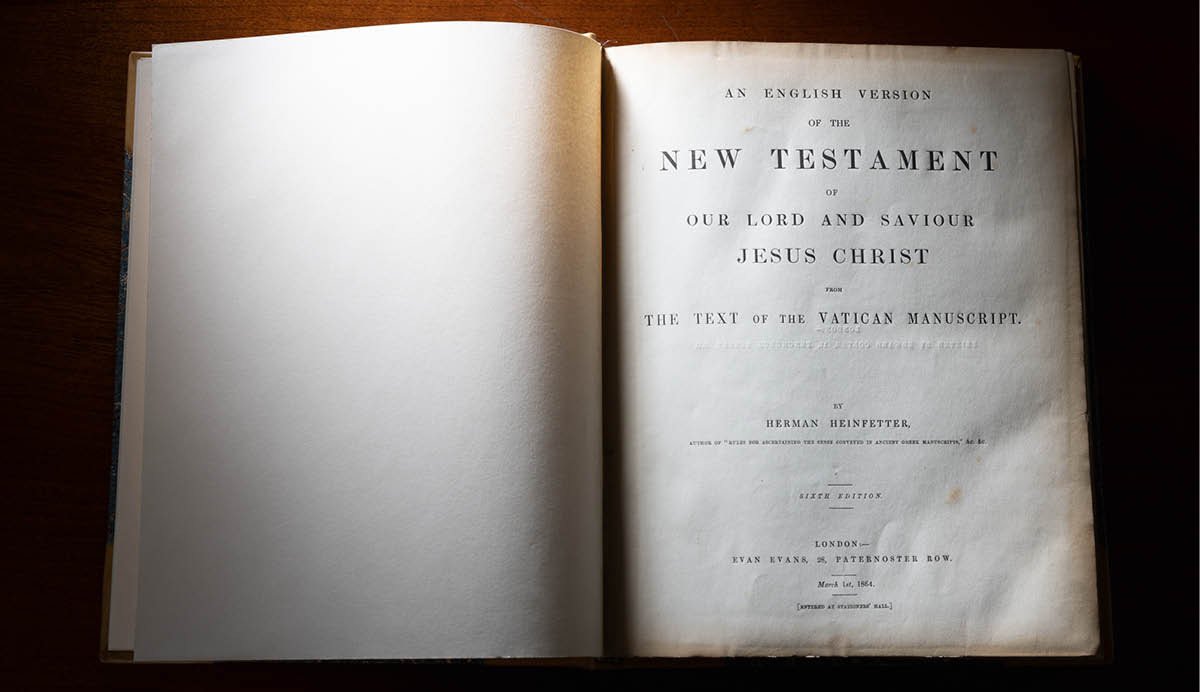
Title page of Parker’s 1864 translation of the New Testament
In 1864, Parker also released A Collation of an English Version of the New Testament . . . With the Authorized English Version. His reason for combining the two New Testaments into one volume was to show where and how his version differed from the other. e
To illustrate the value of restoring God’s name, Parker pointed to a number of verses in the Authorized Version, including Romans 10:13, which reads: “For whosoever shall call upon the name of the Lord shall be saved.” Parker asked: “[Who] ever gathered from the Authorized English Version of these Verses, that it was Jehovah, and not The Son Jesus Christ our Lord, . . . referred to in them”?
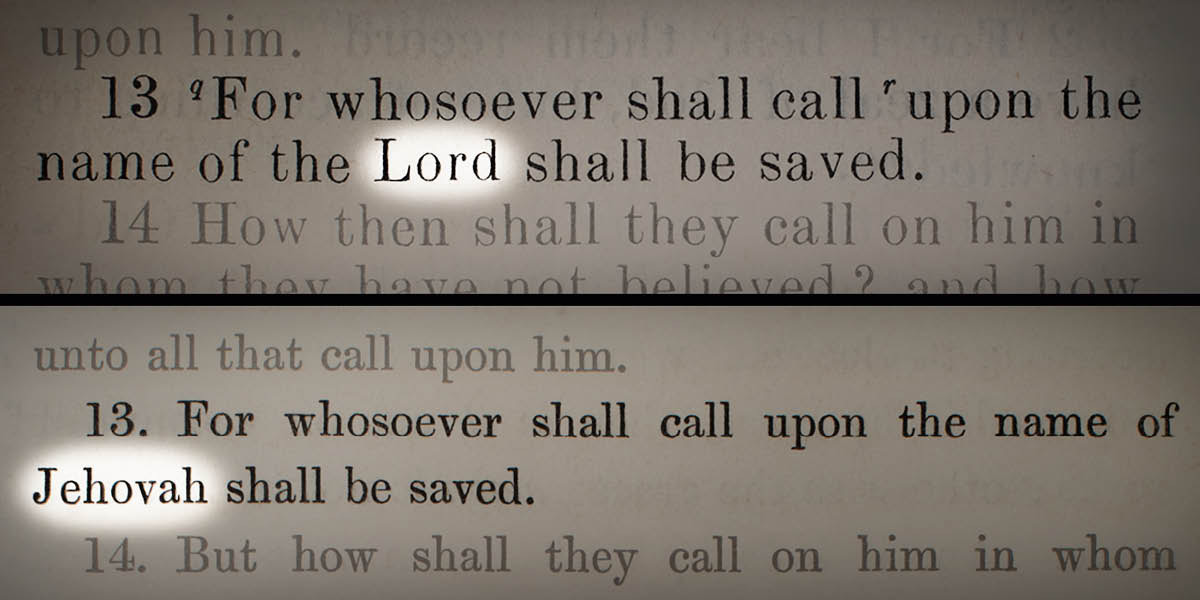
Romans 10:13 in the King James Version (top) and Parker’s 1864 translation
Parker spent thousands of pounds—a fortune back then—on publishing and advertising his tracts, papers, and other writings. In fact, in just one year, he spent 800 pounds, which is equivalent to over 100,000 British pounds ($132,000 U.S.) today. He also sent complimentary copies of many of his publications to acquaintances and high-ranking clergy for their review.
Parker’s writings and his translations of the New Testament, which had a very limited printing, were ridiculed by some scholars. In doing so, however, they drew attention away from the sincere effort that he, as well as Shadwell and others, had made to restore God’s personal name to the English New Testament.

You may also like to watch the informative ten-minute video: Warwick Museum Tours: “The Bible and the Divine Name.”
The translators of the New World Translation of the Holy Scriptures also have deep respect for God’s name. If you would like to learn more about why the divine name should be included in the entire Bible, read Appendixes A4, A5, and C1 in The New World Translation of the Holy Scriptures (Study Edition).
a “Jah,” a shortened form of “Jehovah,” is found at Revelation 19:1, 3, 4, 6 in the expression “Hallelujah,” which means “Praise Jah, you people!”
b Shadwell did not translate the complete New Testament. The other translators include Philip Doddridge, Edward Harwood, William Newcome, Edgar Taylor, and Gilbert Wakefield.
c In order to separate his business interests from his Biblical scholarship, Parker used the pen name Herman Heinfetter in his religious writings and Bible translations. This name appears a number of times in the appendixes of The New World Translation of the Holy Scriptures.
d In 1864, Parker released An English Version of the New Testament that uses God’s name 186 times.
e Prior to Parker’s translations, many Hebrew translations of the New Testament included God’s name in various verses. Also, in 1795, Johann Jakob Stolz published a German translation that uses God’s name more than 90 times from Matthew to Jude.
**Article taken from jw.org (11/24/22)**